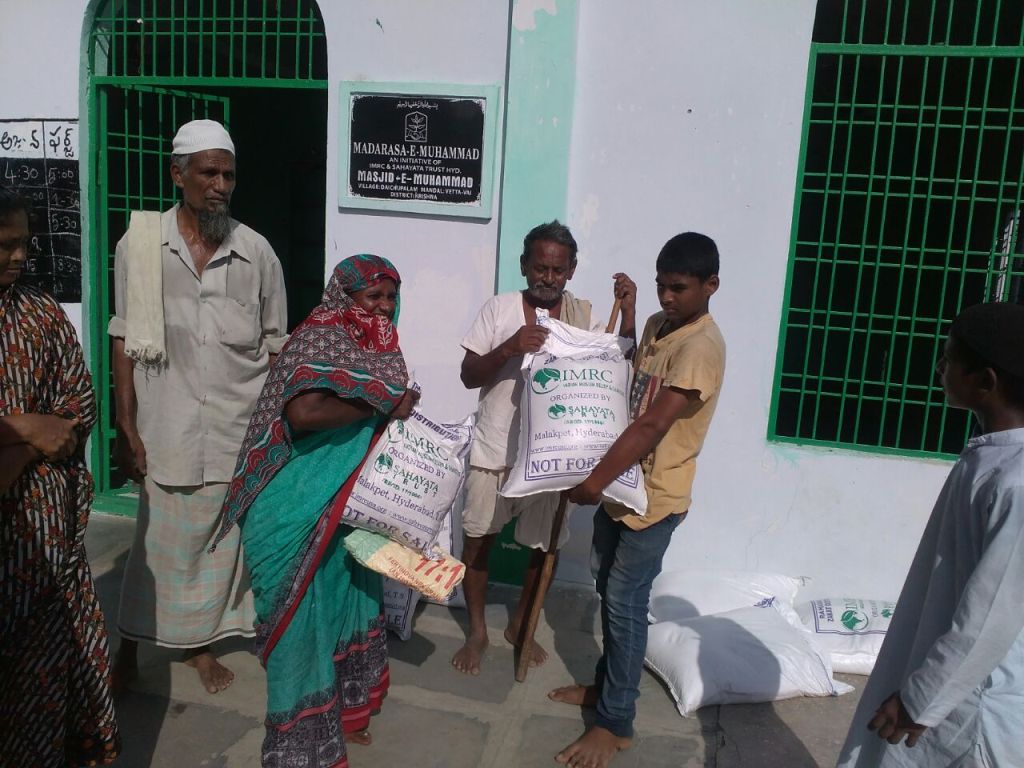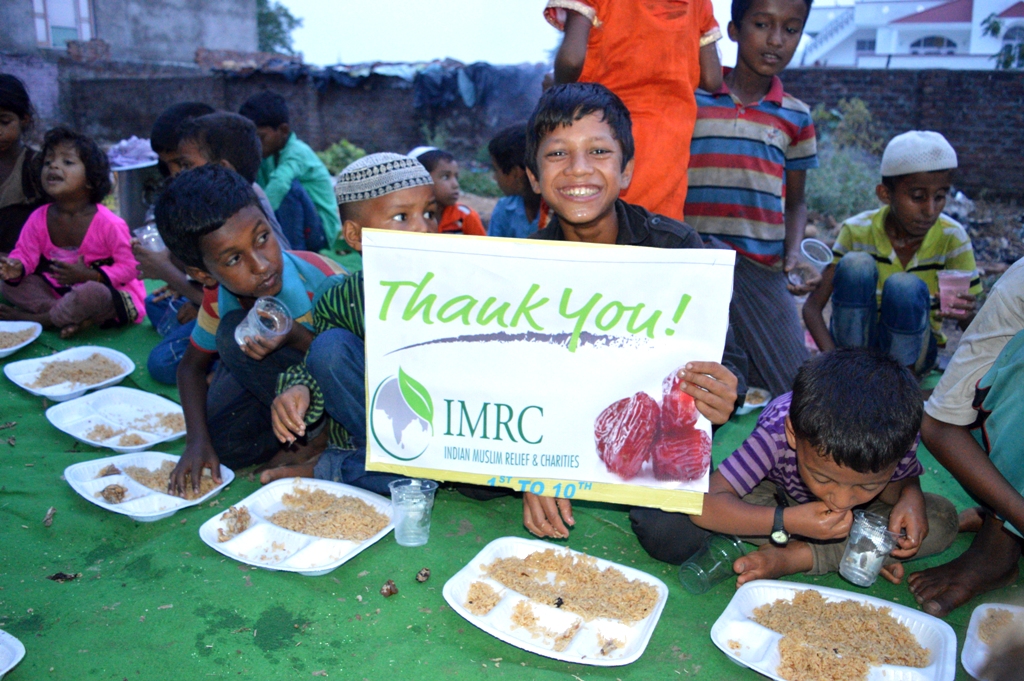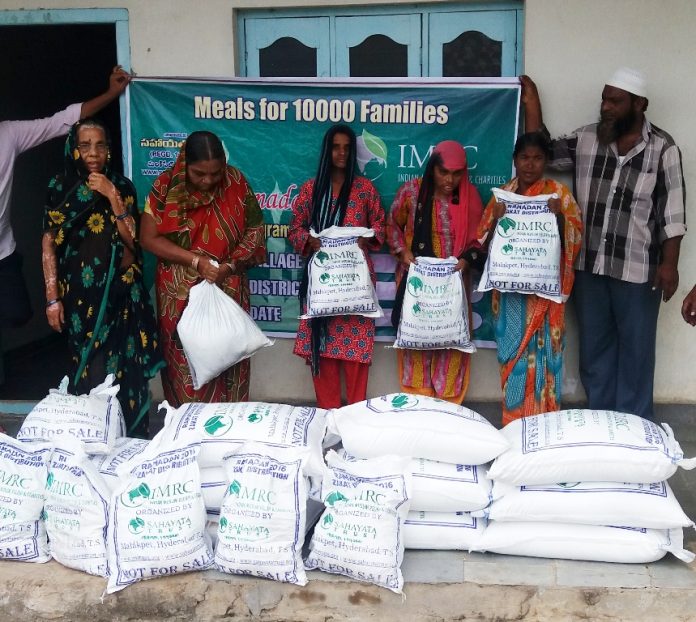By Raqib Hameed Naik, TwoCircles.net
Every year, more than one billion people across the world welcome the holy month of Ramadan, when Muslims fast from dawn to dusk to fulfill one of the five pillars of Islam.
Muslims in India, who constitute a population of 14.23% (according to 2011 census), observe the month with great religious fervour. People fast, pray taraweeh in Jamaat and mosques are filled with people praying round the day and night. People invite neighbours and relatives over for Iftaar (meal eaten after sunset during Ramadan)and Suhoor (pre-dawn meal).

But a sizeable population of Muslims in India aren’t fortunate enough to enjoy their Iftaar and Suhoor during Ramadan.This can be gauged from the report of post-Sachar evaluation committee, headed by former JNU professor Amitabh Kundu, which showed that poverty levels among Muslims remained higher than the national average between 2004-05 and 2011-12. In terms of consumption expenditure, Muslims figure with other disadvantaged sections of society like Scheduled Tribes and Scheduled Castes.
The uncertainty over earning enough to survive remains round the year over the poor Muslims, but the problem becomes more complicated during Ramadan when they have to fast and work simultaneously. Sometimes they do get work but in most of the case work is unavailable and resources scarce.
Thus, the uncertainty prevails over earning ‘Suhoor’ and ‘Iftar’. They worry about when their next proper meal will be and what can they have suhoor with, and what to eat when breaking fast. They wonder if Eid will be celebrated with new clothes or their worn out ones.

Here the non government organisations, charitable trusts, other non-profit and individual philanthropic initiatives have a central role to play. Hundreds of these organisations and thousands of people in their individual capacities undertake various activities and provide food and other relief to people across India during Ramadan, but the work of US-based Indian Muslim Relief and Charities (IMRC) is something extraordinary and deserves special attention.
IMRC’s Ramadan initiative, which they have named as “Ramadan Feeding Program” reaches to thousands of families across India every year. Their outreach can be gauged from the fact that during 2016 Ramadan, 50 lakh meal in grains were distributed among people in 22 Indian states and over 1 lakh cooked meals were served at 414 community served Iftaar. Besides 11,125 people benefited from receiving new Eid clothes. In 2015, 20 lakh meal in grains were served to 15,000 families whereas this number was close to 16 lakh and 20 lakh meal in grains were served in 2014 and 2013 respectively. With each passing year, more and more families are being served with meal in grains and cooked food during Ramadan.
The ‘Ramadan Feeding Program’ is being conducted by IMRC since last 36 years to ensure that the poor and needy in both urban and rural areas are able to have access to food during the holy month.
Take the case of Golbahar Bibi, 70, a widow from Telijant Village in West Bengal. She collects shawl leaves and wood to sustain herself, despite fasting the whole month. “For an old women like me, it is difficult to work under the scorching heat and fast during Ramadan. I used to save money round the year and feed myself in Ramadan, but most of the time, the amount used to fall short,” she said.

Golbahar along with dozens of other families in her village were provided with food packets during 2016 Ramadan by IMRC. The food in grains package includes items such as wheat flour, lentils, oil, salt, chilli, other more and hot meals.
The case of Shahzadi Khatoon from village Maigra in Gaya District of Bihar is no different. Her husband is a daily wager, toiling hard to provide his family with a two square meals.
Ramadan is a struggle for both husband and wife as due to fasting, it is difficult to work and the situation is made worse in the intense heat of Bihar, which could lead to heat strokes. “For people like us, the struggle for grains continues throughout the year and continues during Ramadan. When we barely make ends meet in other months, can you imagine what the situation is during Ramadan? We have zero savings, so we continue working even as we fast,” says Khatoon.

Shahzadi Khatoon along with 2,860 families in Bihar and Jharkhand were also served food packets during 2016 Ramadan.
Over 1,500 kilometers from Bihar in Hyderabad, Rubina Begum, a widow and Septuagenarian from Nampally locality of Hyderabad is unable to speak. Her only daughter is also a widow who lost her husband some years back due to illness. Now, the mother-daughter duo work as house maids to sustain themselves.
“My mother is 68, but still has to work because, if she doesn’t work, then there won’t be sufficient ration in our home to eat. My income isn’t sufficient to sustain our family of three,” said her daughter. Every year, IMRC provides food packets to this family during Ramadan.
In Rajasthan’s Alwar district, Sharfuddin Ahmed, 45, a labourer has to support a family of six. His family along with 1,000 other persons were served with hot meals under IMRC “Village Iftar Program” last year.
The program extends beyond providing cooked meals and grains during Ramadan. It also provides for the new Eid clothes to children and adults.
As the holy month of Ramadan is approaching again and is just a week away, IMRC has already set hundreds of volunteers in motion across the country, who are working at warehouses with the grain packets, packaging and placing across the distribution centers spread over the length and breadth of the India.


